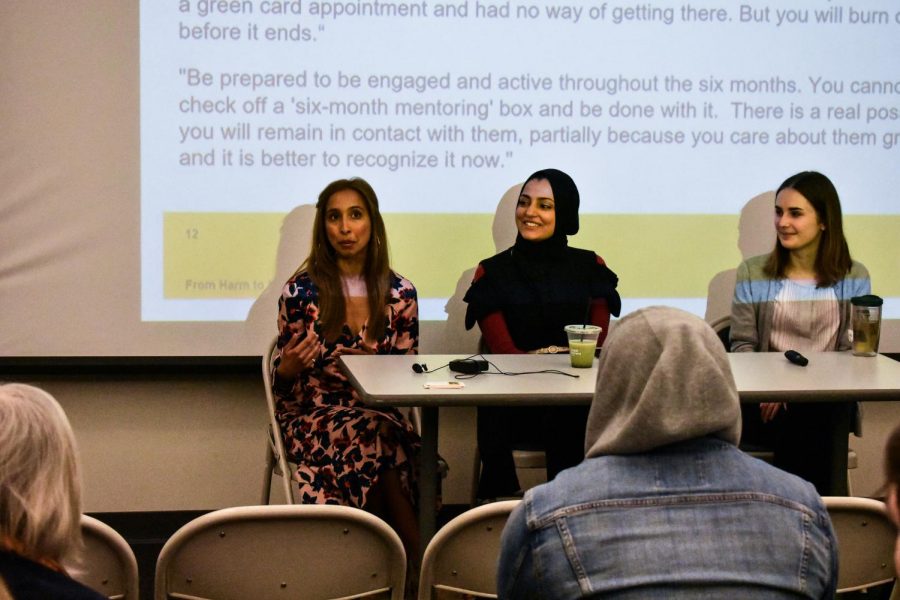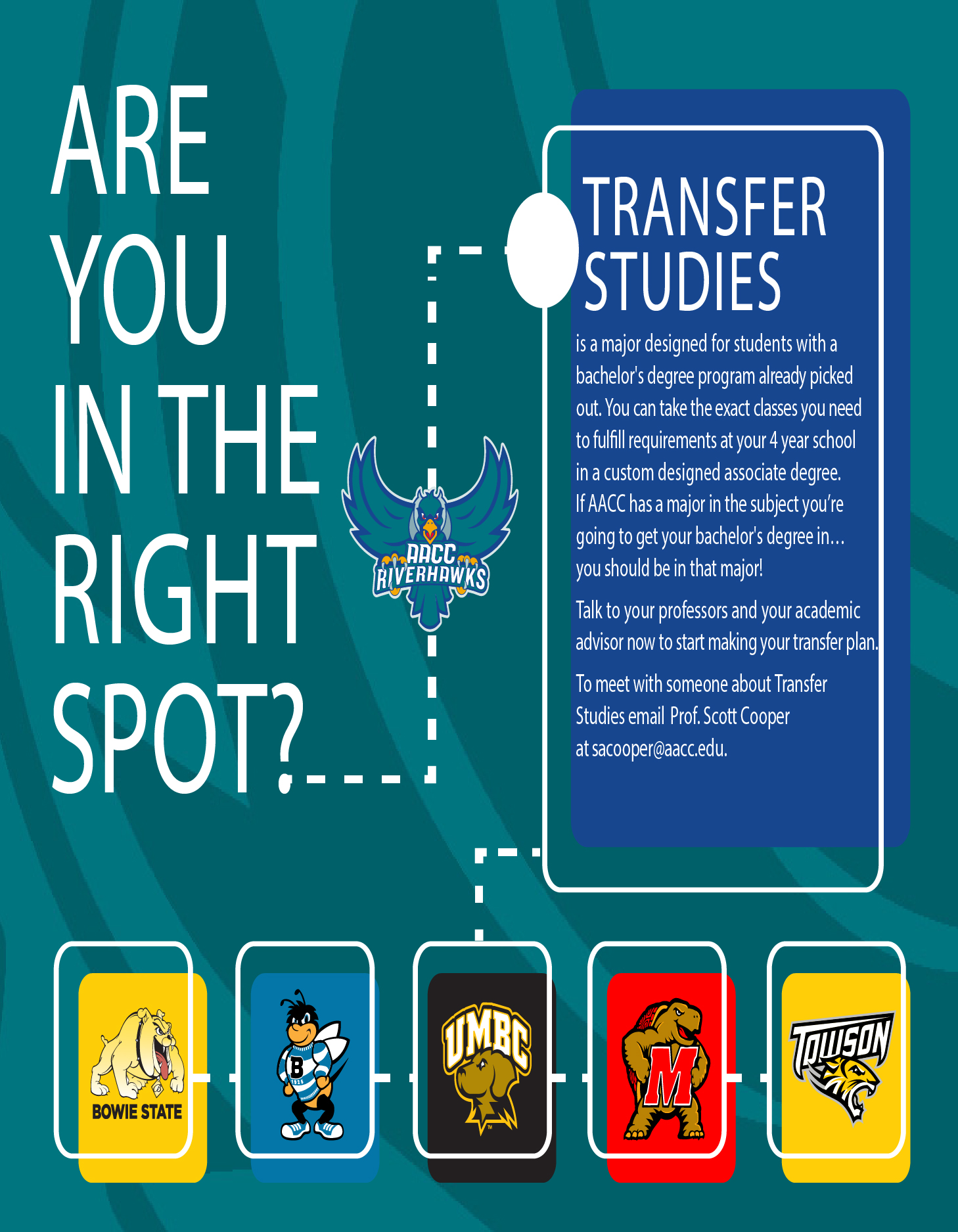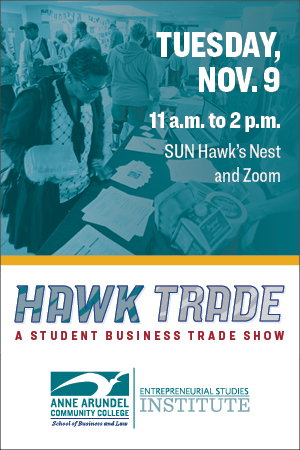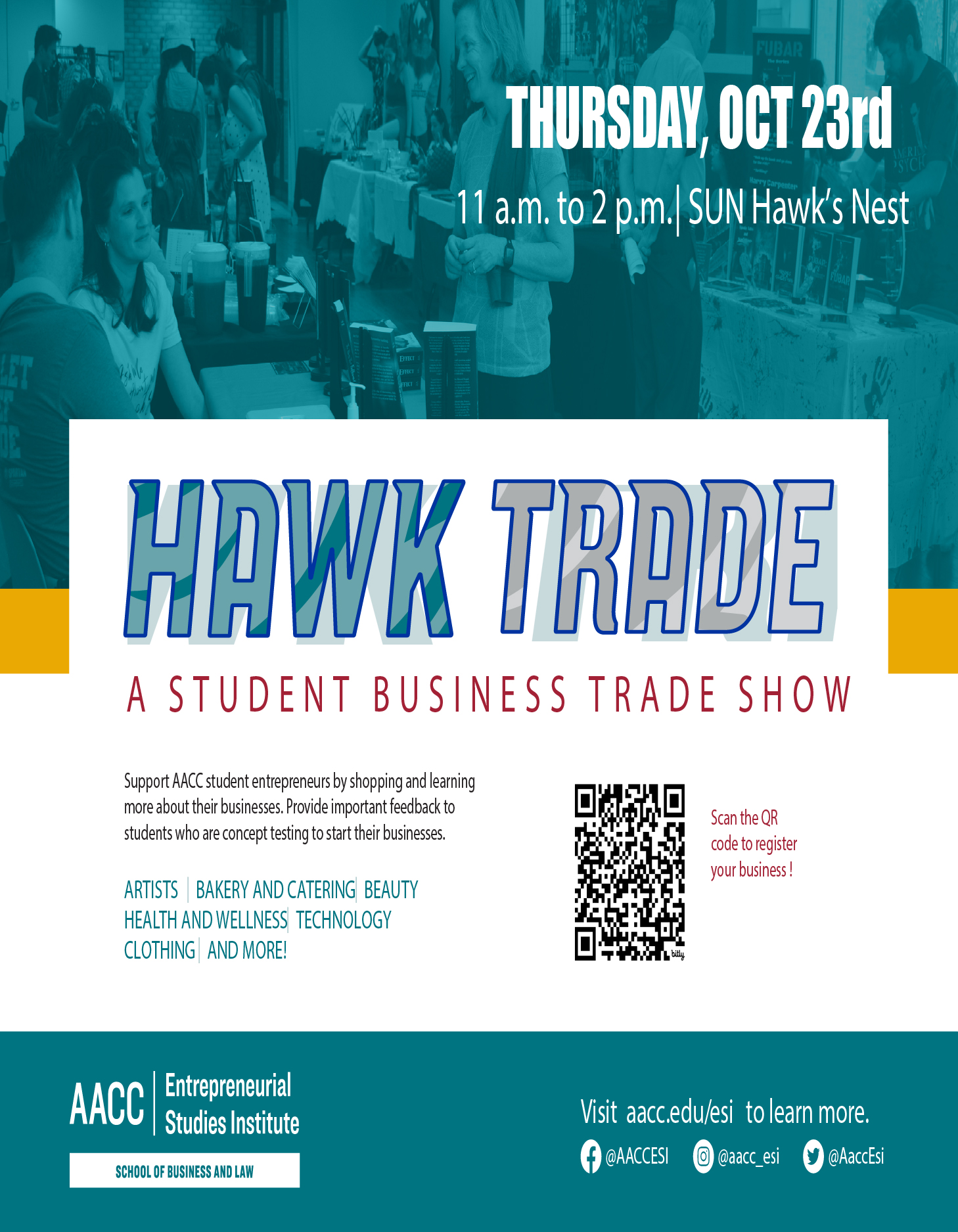Campus hosts events for immigration month
Photo by Gerald M. Maravanyika
Maheem Taqui (left) and Nimra Kham give a lecture in CALT 100 at an immigration information session.
May 1, 2018
AACC students and Anne Arundel County community members attended lectures and a movie on campus throughout April and received free legal advice about immigration in the U.S.
“We just want to put a human face on some of these immigration stories,” said Adil Qaiyumi, a homeland security professor and one of the organizers of the Immigration Awareness Month events on campus. “Especially the last few years with all the rhetoric surrounding immigration … [these events are] just kind of highlighting the fact that this country is founded on immigration.”
“To a certain degree, immigration and immigrants are not just a facet of our country’s history—I think they are our country’s history,” Ryan Miller, a history student, said. “Immigration is a source of vitality and vigor for our country, so I think it’s important that we’re made aware of that fact every year.”
Qaiyumi and professor Anika Ingram, both practicing immigration attorneys, began Immigration Awareness Month at AACC four years ago, Qaiyumi said.
Ingram said the events are important because they help to “open up a dialogue” about immigration “no matter what your feelings” are about the issue.
“And also just getting information, actual information and not just hearsay and so-forth,” Ingram added.
Qaiyumi said out of all the events, he was most excited about “Ask an Immigration Attorney Night” on April 11, when multilingual speakers offered free, 20-minute legal consultations to students and community members with questions related to immigration.
“Normally [these consultations] are kind of expensive,” Qaiyumi said, adding it’s rare for immigration attorneys to offer free consultations.
No one came to the event in person, but Qaiyumi and Ingram conducted two phone consultations during the evening. Previous years drew crowds ranging from four last year to about 12 the first year, according to Qaiyumi.
Qaiyumi said in an email the low turnout this year might have been in part because of “a chilling effect from the rhetoric being used by this administration when it comes to immigration” as well as because the department did not advertise early enough.
“Our fliers also indicate the program is offered by the Homeland Security and Criminal Justice Institute, and I hope the name doesn’t scare away prospective consults,” Qaiyumi added in the email.
On April 17, the International Rescue Committee—a humanitarian organization that offers both emergency and long-term aid to refugees—spoke to students and organizations about how to sponsor refugees locally.
“[Refugees] are given a few months of housing assistance and a stipend,” although many immigrants do not speak English, he said. Then, they are “left to fend for themselves” by the government.
“I was really happy to find out how to contribute [to] the program,” said Ina Coulivany, a second-year homeland security student who attended the event. “I, myself, was an immigrant. … So I’m really interest[ed] as a mother how I can help other people when they come here, because it’s not easy.”
Also last month, AACC hosted a screening of and discussion about “Forbidden: Undocumented and Queer in Rural America,” a documentary about a gay man who grew up in North Carolina without legal immigration status.
And finally, on April 26, AACC’s Criminal Justice Association hosted an international lunch, storytelling and information session.











